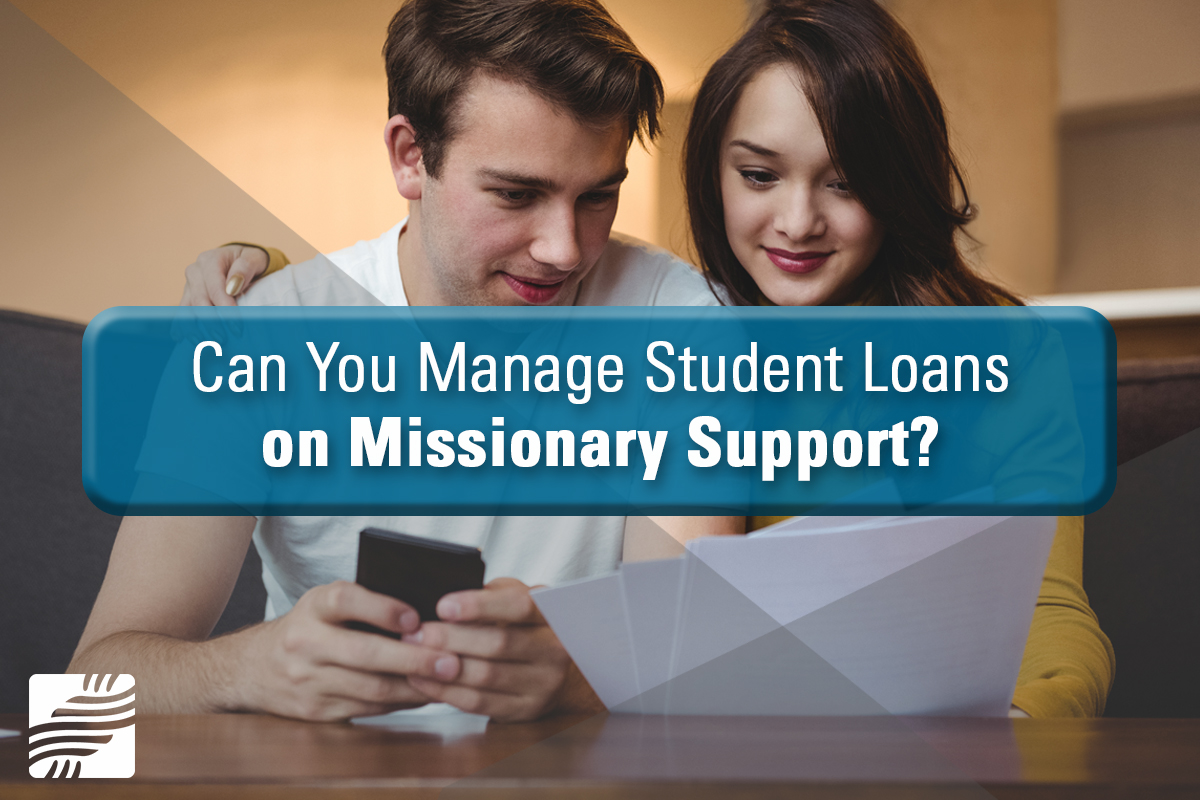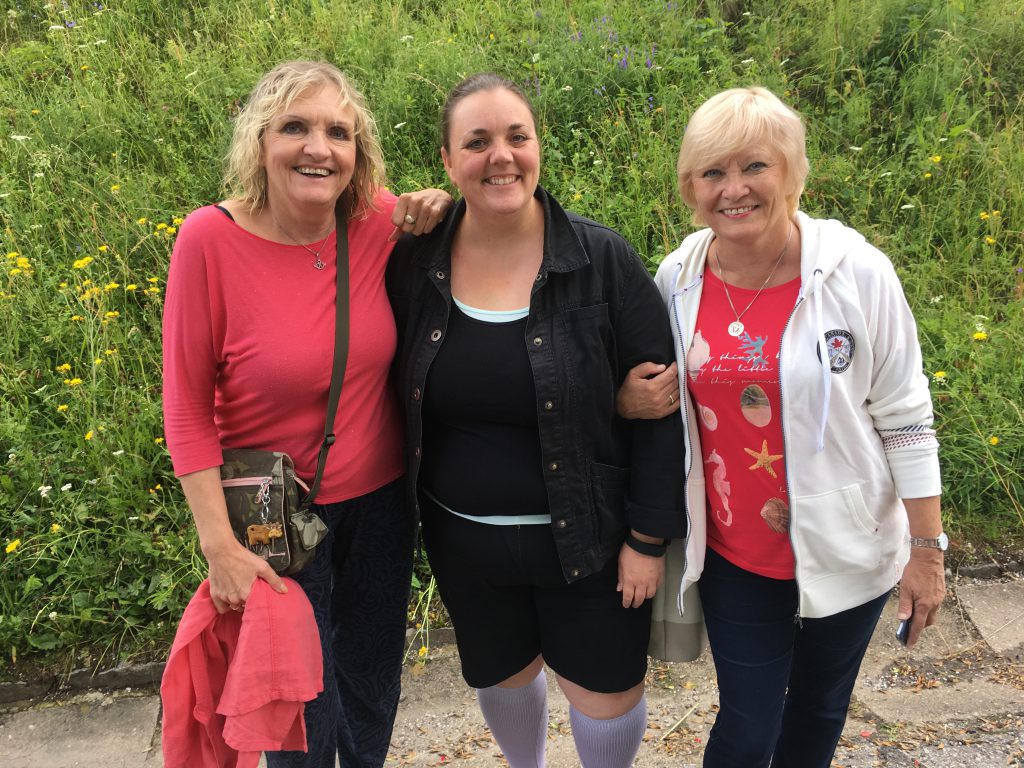
Becoming a Missionary, Missionary Life
How to Be a Missionary with Student Debt
September 23, 2020
by admin

Let’s start with the good news: The world is full of missionaries who are happily serving in ministry while paying off their student debt. They aren’t all stellar financial planners, and they aren’t living in poverty to make it happen.
In other words, you can be one of them.
The tips I’m about to give you are simple and practical. I’m not going to tell you what to do, because every situation is different, and I am not a financial advisor. But I will share what’s worked for missionaries before you and share resources created for nonprofit workers. I’ll also share tips for paying off your student debt before you hit the mission field.
Student debt can feel overwhelming no matter what life choices you make. But it does not have to stop you from pursuing God’s call. Here are my best tips for how to be a missionary with student debt.
1. Find Out What Your Mission Agency’s Debt Limit Is.
Most mission agencies realize that if they want well-trained, qualified people, they need to accept missionaries with student debt. After all, roughly 18 percent of American adults are paying off student loans.
But responsible mission agencies also want to lead prospective missionaries to make responsible choices with their finances. That’s why many agencies set a student debt limit (usually around $20,000, according to the Go Fund). Agencies look at the average missionary’s support levels and what kind of monthly payments a missionary could reasonably make.
TEAM’s general student debt limit is $30,000. We also look at each situation individually to make sure other factors won’t make that number unmanageable. Being a missionary with student debt should never mean that you struggle to get by financially.
So, ask for your agency’s debt limit and figure out your standard payment plan (more on that later!). This will prepare you for step 2.
2. Build Two Strong Budgets.
Your mission agency will likely work with you to create a budget for the time you are serving abroad. But before that happens, you should build a budget to live on while you’re still at home.
This is a step you may be tempted to skip, but I urge you to resist! Managing your finances abroad is complex. The taxes are different, you’ll have added expenses and nothing is going to be in your currency. If you don’t have a good understanding of your financial situation at home, you’ll struggle to plan for your needs abroad.
If you’ve never created a personal budget, Crown Financial Ministries has a whole library of financial courses (including one on eliminating debt and another on debt-free living). You might also want to look into downloading a budget app to help you sort out your numbers.
Once you have your at-home budget set, you’ll be better equipped to create a budget for your life abroad.
Your mission agency will factor in the average cost of missionary living in your future host country, as well as ministry expenses. You’ll also add in any unique expenses (e.g. medical expenses not covered by insurance). From there, you can decide how to deal with your student debt.
Some missionaries pay for their student loans out of their standard budget, choosing to sacrifice leisure money to make it possible. Other missionaries choose to raise extra funds to cover the payments. There’s no right choice here. Deciding what to do is all about whether you’d rather live on a little less or find more supporters.
3. Pay Extra Whenever You Can.

Christina Mayer (middle) has never had a large budget, but her commitment to her finances has helped her pay off student loans — and pay her way through seminary.
“Whenever you can” is the key phrase here. It means you don’t guilt yourself over making the standard payment when things are tight — but you commit to paying more when it’s possible.
TEAM missionary Christina Mayer started Bible college seven years after she graduated high school. She lived alone, and she didn’t have a lot of savings. When she graduated, she ended up working minimum wage.
If anyone could make excuses for not paying extra on her student loans, it was Christina. Still, she says, “I wanted to make a dent in the actual loan, so I always tried to pay at least $20 to $30 more.”
When Christina applied with TEAM, she could easily prove that she knew how to live on less — and certainly could handle being a missionary with student debt. When TEAM sent her to the Czech Republic, she kept making extra payments on her loans, just like she always had.
Gradually, those little extra payments added up. And today, Christina’s taking the next step in her education, paying her way through seminary on a missionary’s salary.
Your debt may feel overwhelming right now, but with dedication, you will see your number drop.
4. Check Out Ministries that Pay Off Your Student Debt.
It may sound too good to be true, but, yes, there are ministries that raise funds just so they can pay off missionaries’ student loans.
The Go Fund pays off student debt for cross-cultural, long-term missionaries who are serving among unreached people groups. Candidates apply online and go through a rigorous interview process. Once you’re selected, you continue paying on your student debts as you go to the mission field. After 10 years of missionary service, the Go Fund pays off your remaining student debt.
MedSend provides student loan repayment grants for professionals serving in healthcare missions service. Their goal is to get healthcare workers to the field as soon as possible, so they make missionaries’ monthly student loan payments while the missionary serves on the field.
Some Christian colleges and universities also have missionary student loan forgiveness programs — especially for recent graduates. If you went to a Christian school, make sure to talk to your alma mater’s financial aid office to see what options may be available.
5. Explore Government Student Loan Repayment Plans
If you don’t qualify for one of the forgiveness programs above, you may qualify for a government program. However, these programs merit a word of warning.
Government student loan forgiveness programs generally require annual paperwork and adherence to strict rules on how you pay back your loans. Many people have thought they were on their way to being debt-free only to find out that they were never qualified. Make sure you know all the guidelines for your forgiveness program and fill out paperwork in a precise and timely manner.
With that warning aside, here are some of the possibilities for Americans with student debt:
The Public Service Loan Forgiveness Program is an option for people employed by the government or not-for-profit organizations — including mission agencies. Similar to the Go Fund, this program requires you to make 120 qualifying monthly payments while you work for a nonprofit. At the end of 10 years, it pays off the remainder of your loans. This program is known for being a bit confusing, so make sure you do thorough research and call their helpline with any questions.
An income-driven repayment (IDR) plan lets you make payments based on your income. Then, after a set amount of time and number of payments, your loans are forgiven. There are several to choose from, and the benefit is generally lower payments. However, each program has pros and cons, depending on your situation.
Finally, student loan consolidation programs can combine your loans in to one easy (and often lower) payment. This often means a longer repayment term, so be mindful of the tradeoff.
What If I Pay Off My Student Loans Before the Mission Field?

Instead of becoming a missionary with student debt, you might consider paying off your loans first. But make sure you have a solid, targeted plan to do it.
Some people just don’t like the stress of having student loans hanging over them. Others have so many that they exceed most mission agencies’ student debt limits. Sometimes becoming a missionary with student debt just isn’t the best option. If you’re going to pay off your student loans before you go abroad, though, make sure you have a solid plan.
1. Build Your Budget
Go back to step 2 of the previous section and make yourself a personal budget. Get a handle on what assets and income you have. Look at what you can sacrifice in the coming years. Then create a plan for how much you’ll pay off each year and when you’ll be able to make your final payment.
As you build this financial plan, set dates for when you’ll begin applying with mission agencies. At TEAM, it takes one to two years for a long-term missionary to apply, be accepted, raise support and get to the mission field. So, if your goal is to get the field as soon as possible, you’ll likely want to apply to the agency a year before you make your final loan payment.
Setting these deadlines early will help you maintain your focus over the years.
2. Find Accountability
If you haven’t already talked with your church about your desire to be a missionary, do that now. Your church leaders should have a voice in your calling, and they can help keep you accountable to your vision.
While you’re paying off your loans, look for opportunities to prepare yourself for the mission field. Get involved in cross-cultural ministry and seek out opportunities to build the skills you’ll need on the field. Consider taking a short-term mission trip to help refine your ministry plan.
TEAM Stewardship Coach Jennifer Nickels warns that once you start paying off debt, it’s easy to get caught up in the other things you could start saving for: a house, a baby, a car.
“Sometimes you might … forget that that was something that you originally dreamed or felt called to because now it’s a matter of, ‘Oooh, I could do all of these other things,’” Nickels says.
Plan for this temptation before it comes so you can stay on track and accomplish the ultimate goal.
Don’t Let Student Loans Keep You from Ministry
When we take out student loans, most of us have no idea how they’ll shape our lives. But with the right tools and determination, you can handle them responsibly and live a life of service for God.
“Don’t let the student loans … hold you back,” TEAM missionary Christina Mayer says. “If that’s what God wants you to do, you need to listen and obey and just follow in His footsteps.”

